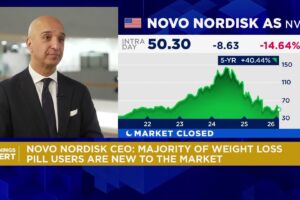
On Monday, PepsiCo (PEP) reported its financial results for the second quarter of fiscal 2020.
For the quarter, organic revenues declined marginally, with a 5% increase in the company’s snacks business due to overall category growth and market share gains offset by a 7% decline in the beverages business due to headwinds in convenience stores (C-stores) and other high-margin away-from-home channels (most notably foodservice). This decline followed a strong result in the first quarter (organic revenues +8%), with year to date organic revenues at PepsiCo up 3%.
Growth in the quarter and through the first half of the fiscal year was led by Quaker Foods North America (QFNA), with organic top-line growth of 23% and 15%, respectively (and even higher growth in segment income due to operating leverage). This strength reflects Quaker’s exposure to prepare-at-home foods in categories like breakfast that have benefited during the pandemic. A consumer who previously may have stopped at McDonalds (MCD) for an Egg McMuffin on the way to work every morning is now eating a bowl of Quaker Oatmeal Squares cereal at home.
Frito-Lay North America has been another area of growth for the company, with revenues in the quarter and year-to-date up mid-single digits due to a combination of volume growth and higher net pricing. As CEO Ramon Laguarta noted on the earnings call, success at FLNA has been widespread:
“We gained market share in salty, savory and macro-snacks in the quarter. Frito’s net revenue growth was broad-based across all our major brands including double-digit growth in Tostitos, Fritos and Cheetos, high-single digit growth in Ruffles and mid-single digit growth in Doritos.”
As I’ve discussed in the past, Frito-Lay North America continues to be the primary business driver at PepsiCo: through the first six months of fiscal 2020, FLNA operating income has increased 4% and accounted for 50% of the company’s profits (excluding corporate expenses). Based on the financials, this company should be called Frito-Lay, not PepsiCo.
The strength in snacks was offset by disappointing results from the beverages business, which has outsized exposure to away from home channels that depend upon consumer mobility like gas stations and restaurants. Organic revenues at PepsiCo Beverages North America (PBNA) declined 7% in the quarter on a 10% decline in volumes.
In addition to the decline in revenue, PepsiCo incurred roughly $400 million in pandemic related expenses in the quarter to ensure employee safety and business continuity. As Chief Financial Officer Hugh Johnston noted, “Our business experienced higher labor, personal protective equipment, logistics and service costs associated with Covid-19.”
These costs were the primary driver of a roughly 200 basis point decline in the company’s operating margins. As a result, operating income declined low double digits in the quarter, pulling the year to date result to a mid-single digit decline in adjusted operating income (with a slightly better result on EPS due to a lower share count and a lower effective tax rate).
While the company expects those pandemic-related costs to persist in the short-term, they also believe the headwind to profitability (specifically related to Covid-19) will lessen in the third quarter. In addition, they believe the business will return to organic revenue growth next quarter.
Through the first six months of the year, PepsiCo has paid $2.7 billion in dividends and repurchased $1.1 billion worth of stock, resulting in a 1% decline in the diluted share count to 1.393 billion shares. The company recently increased its dividend by 7% to $1.0225 per share, marking the 48th consecutive year that PepsiCo has increased its dividend. Management expects to allocate another $900 million to share repurchases in the back half of the fiscal year.
<p class="canvas-atom canvas-text Mb(1.0em) Mb(0)–sm Mt(0.8em)–sm" type="text" content="Conclusion” data-reactid=”30″>Conclusion
While PepsiCo faces some short-term pressure due to their exposure to channels like C-stores and foodservice, that has been partly offset by the tailwinds experienced in the stay-at-home categories served by Frito-Lay and Quaker. Looking forward, I believe that this diversified business exposure will enable PepsiCo to comfortably handle whatever lies ahead.
At a current price of $135 per share, the stock trades at roughly 24 times trailing earnings. I no longer own the stock (I sold it in October 2018 to fund my Facebook (FB) investment). That said, given the current interest rate environment, I think you can make the case that PepsiCo could meaningfully outperform “safe” alternatives like long-term bonds in the years ahead. I’ll stay on the sidelines for now, but PepsiCo is still the kind of business that I would happily own if the valuation became less demanding.
Disclosure: Long FB
Read more here:
Not a Premium Member of GuruFocus? Sign up for a free 7-day trial here.
<p class="canvas-atom canvas-text Mb(1.0em) Mb(0)–sm Mt(0.8em)–sm" type="text" content="This article first appeared on GuruFocus.
” data-reactid=”41″>This article first appeared on GuruFocus.









